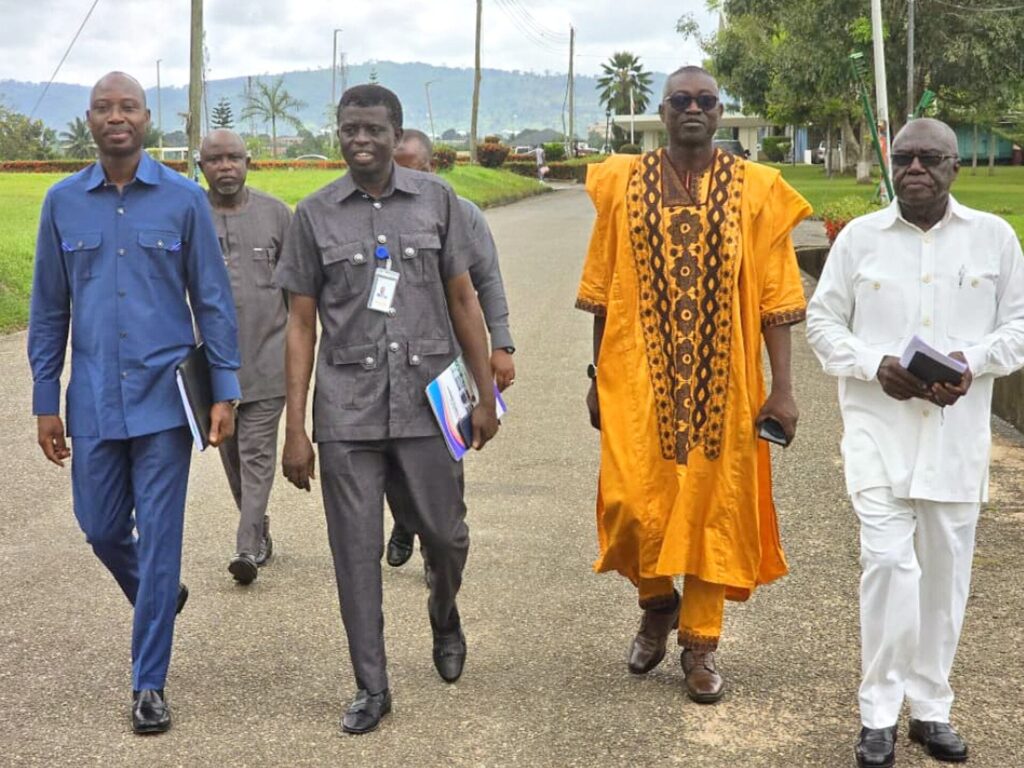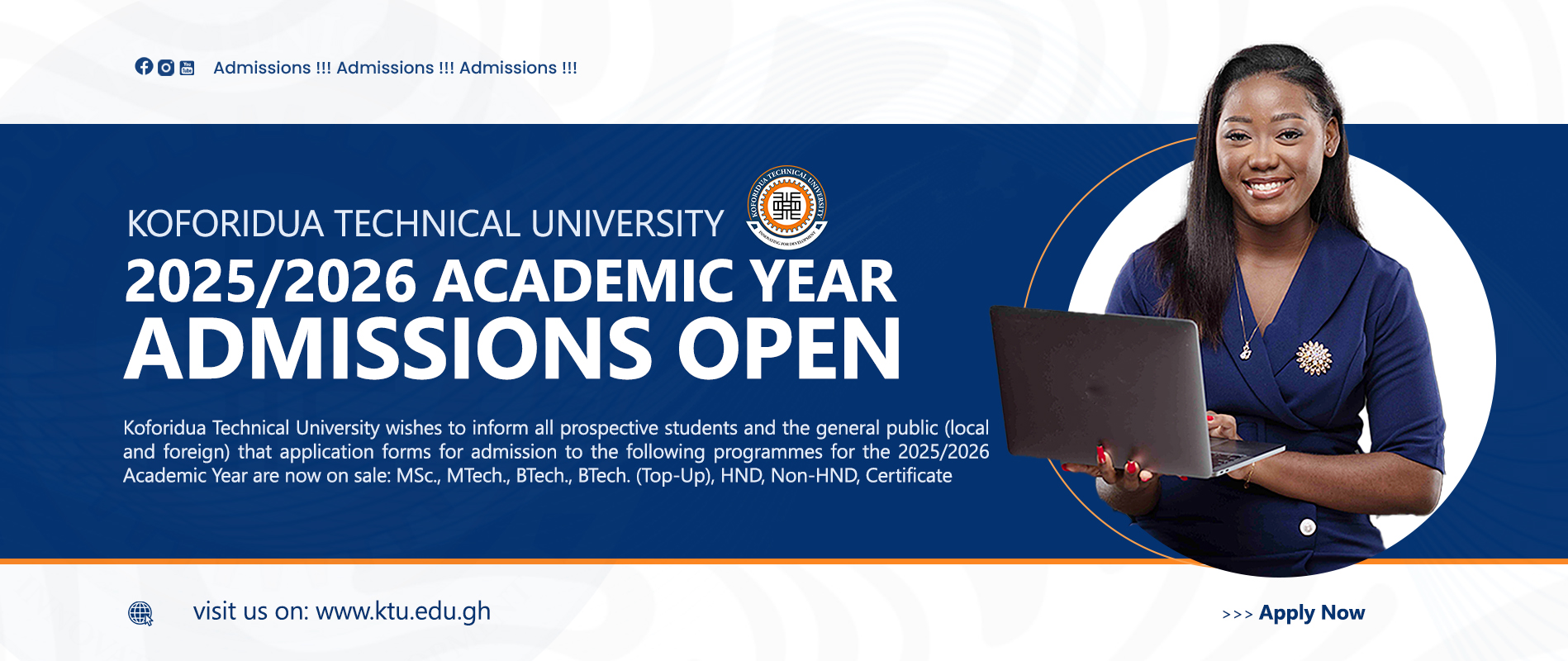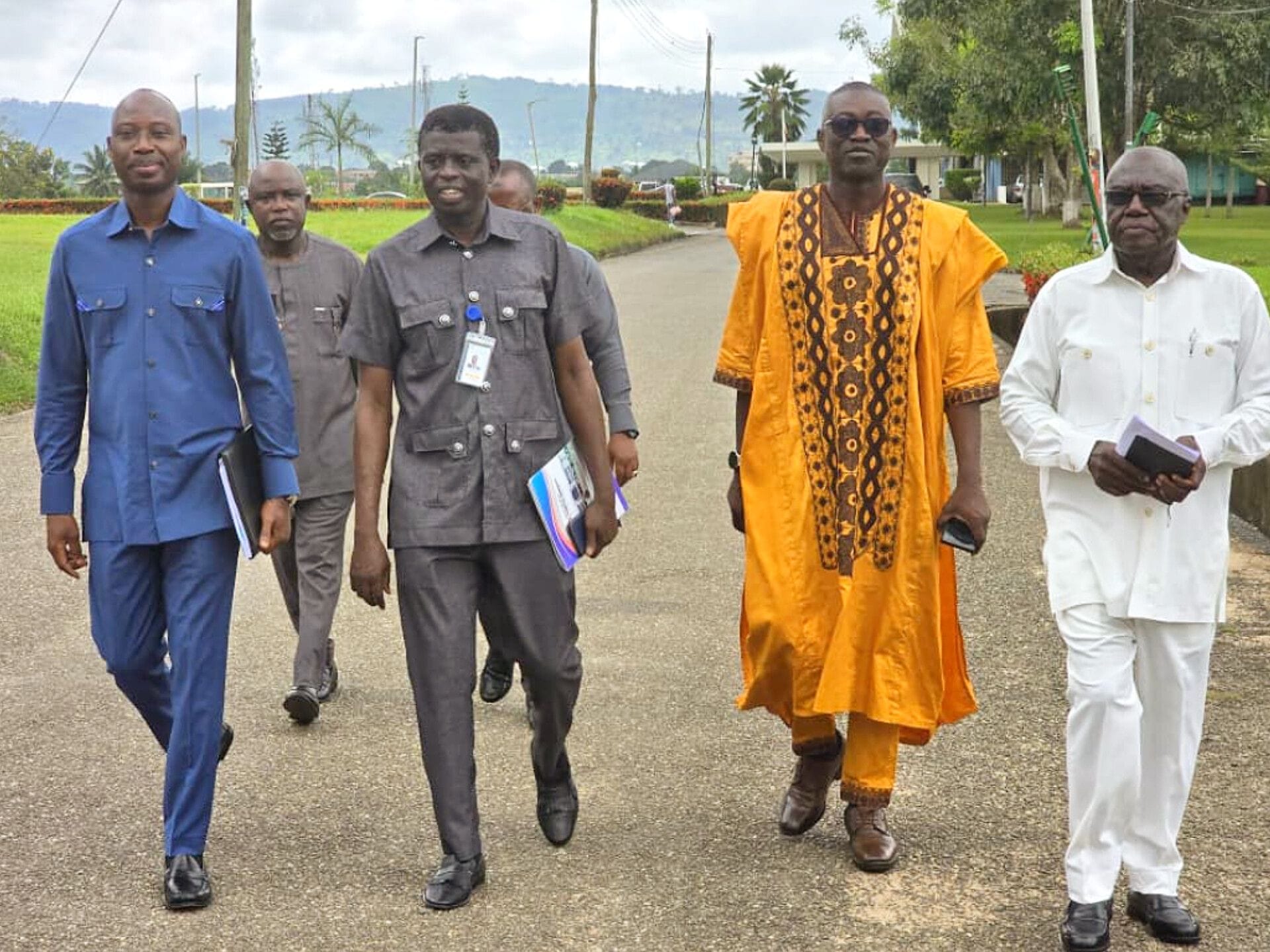Koforidua Technical University (KTU), in partnership with the Ghana Statistical Association (GSA), successfully organized the 2025 Statistics and Data Science Conference under the theme:
“Statistical Perspectives on the Sustainable Development Goals: Measuring Progress, Informing Policy, Shaping the Future.”
The conference brought together an outstanding assembly of leaders, scholars, and development partners committed to advancing evidence-based policy and sustainable development. Among the distinguished guests were:
- Dr. Alhassan Iddrisu, Government Statistician of the Republic of Ghana
- Professor Sagare Nokoe, Chairman of KTU Council
- Professor Bashiru Imoro, Chairman of GSA
- Professor John Owusu, Vice Chancellor of KTU
- Professor Nsowah Nuamah, Chairman of the Institute of Statisticians and Data Scientists
- International dignitaries including Professor Fabrizio Ruggeri, President of the International Statistical Institute (ISI), and Mr. Stephen Penneck, Past President of ISI
- Traditional leadership represented by Nana Tete Pimpong II, Chief of Adwaso
- Members of the business community and the media

The event was graced by the presence of Dr. Enoch Mintah Ampaw, Head of the Department of Applied Mathematics at Koforidua Technical University, who served as Guest Speaker and Special Guest of Honor. In his address, Dr. Ampaw emphasized Ghana’s measurable progress on the Sustainable Development Goals (SDGs), citing the 2025 Voluntary National Review:
- Ghana is now tracking 105 SDG indicators, up from 63 in 2018
- 12% of indicators have met their targets, while 78% show measurable progress
- Multidimensional poverty has declined by 14 percentage points, now at 41%
- GDP growth improved from 0.5% in 2020 to 6.3% in the first half of 2025
Dr. Ampaw reinforced the transformative power of data:
“Statistics are powerful not because we collect them, but because we use them. When data guides decision-making, policies work better, resources reach further, and progress becomes measurable.”
He highlighted success stories such as the Livelihood Empowerment Against Poverty (LEAP) programme and job creation policies informed by labor statistics.
Call to Action
Dr. Ampaw urged stakeholders to:
- Train and nurture the next generation of statisticians and data scientists
- Promote ethical and nationally committed professionals who make data work for development
- Champion evidence-based decision-making to strengthen democracy and accelerate transformation
“Let us be champions of data that drive change, architects of evidence that shapes progress, and stewards of truth that strengthen democracy.”


